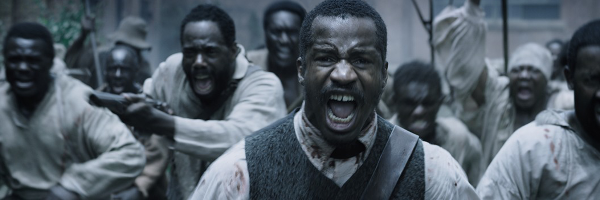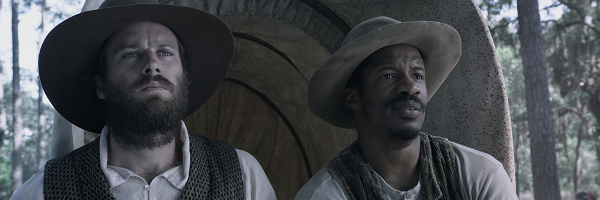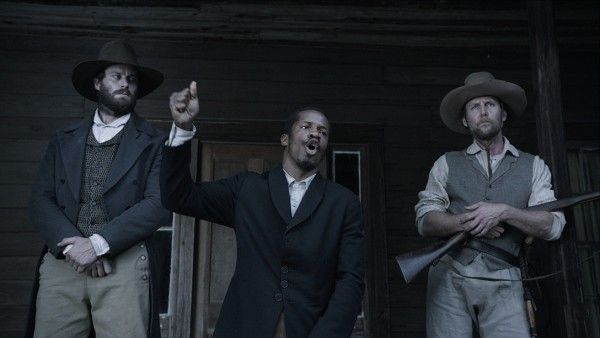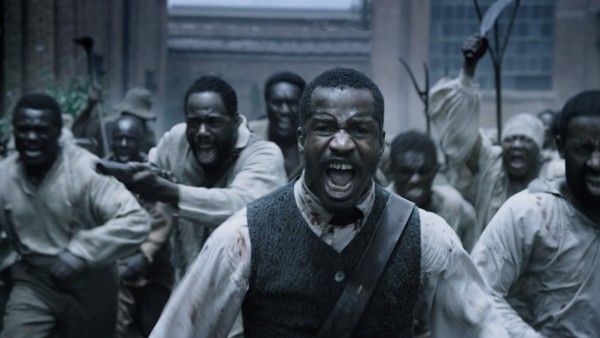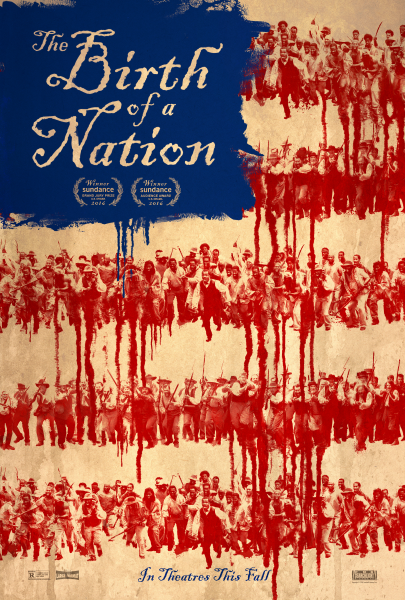[This is a re-post of my review from the 2016 Sundance Film Festival; The Birth of a Nation opens tomorrow.]
Even though the history of slavery in America could always use more attention, I imagine most people learned about Nat Turner’s slave rebellion. In retrospect, it feels like a pre-emptive answer to a question that schoolchildren will inevitably ask: “Why did slaves allow their enslavement to continue?” Nate Parker’s The Birth of a Nation is far more concerned with Turner’s character, and how religion transformed him into a mythic leader. Although the film can be a bit uneven at times, especially in the third act, it can still reach breathtaking moments of beauty and horror as we watch Turner lead a violent and necessary rebellion against the sin of slavery.
In Virginia 1809, a young Nat Turner learns to read the Bible, but instead of becoming a preacher his owner ultimately sends him back to work in the fields. When he becomes an adult, Nat (Parker) continues to preach to his fellow slaves which turns out to be of financial value to his owner and childhood friend Sam (Armie Hammer), who starts loaning him out to other plantation owners to sooth the temperaments of their downtrodden slaves. As Nat witnesses the violence done to his people as well as the personal injustices inflicted on his beloved wife Cherry (Aja Naomi King), his resentment builds, and he begins to see the Bible not as an instrument of peace but as a weapon to lead an army.
Putting religion at the center of Birth of a Nation helps set it apart from standard biopics, although even if Turner had stuck to the familiar beats of the genre, it would be worthwhile because of his subject’s remarkable story. However, keeping the focus on religion gives Birth of a Nation a fascinating layer where we see how Turner has been given an incredible power, not just through his intellect and oratory, but in how the text can both subjugate and empower. Unfortunately, Parker doesn’t trust his audience enough to realize this duality and has Turner articulate this point late in the film, which slightly diminishes its impact.
We also see how Turner is built into a mythic warrior, who may have a weapon based in Judeo-Christianity, but whose spiritual power is in his African tribal ancestry. The movie positions Turner as a man of multiple worlds, and while I wish Birth of a Nation had more time to spend in all of those worlds—the mythic, the religious, the cruel reality of daily slavery in the American South—it builds him into a singular figure, especially with the help of Parker’s commanding performance. While the rest of the cast is a little shortchanged by keeping the focus solely on Turner, this is ultimately his story and we have to grit our teeth through the slight treatment of supporting characters.
If Turner had been spurred to action solely after the attack on his wife, a la Braveheart, it would be a crushing blow to the narrative, but Parker is patient with his narrative. He lets the injustices and madness build until Turner reaches the breaking point. Again, the focus is on faith and Turner has to reposition his view on religion until he completes his transformation to becomes someone who could lead a bloody rebellion that he knows will have serious fallout on black men, women, and children.
The rebellion isn’t noble or pretty, and it’s not supposed to be. There’s almost a tinge of delirious self-confidence as a blood-spattered Turner makes his way to Jerusalem to take the armory, but it’s rewarding to watch this transformation even if it’s slightly undercut by cheap narrative coincidences like Turner coming face-to-face with a slave-hunter (Jackie Earle Haley) who went after his father and later attacked Cherry.
This kind of coincidence along with the overplayed third act feels a bit conventional for a movie that was willing to play it small and patient for most of its run time. It’s like Parker is making a big push to win over an audience he already has. A more experienced writer and director possibly could have crafted The Birth of a Nation into a film as good as 12 Years a Slave, but Parker’s passion and ferocious devotion to his subject remains undiminished. The Birth of a Nation is a brutal, tremendous film that may have irksome flaws, but nothing that overshadows its director’s emerging talent and force of will.
Rating: B

